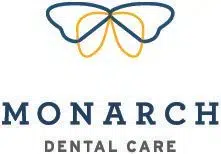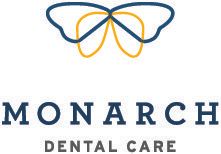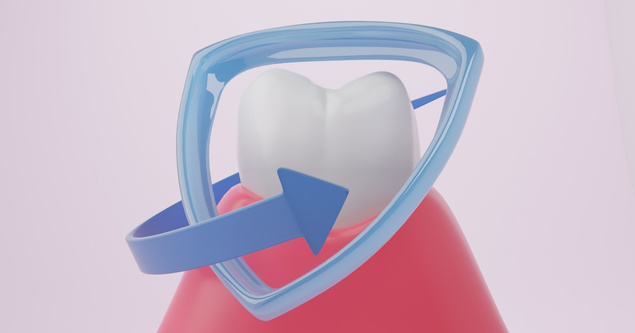
Brushing and flossing are crucial, but did you know your diet plays a starring role in your oral health too? Just like your body, your teeth and gums need specific nutrients to stay strong. This blog post explores the fascinating link between food and your smile. We’ll identify the champion foods that empower your oral health and expose the sugary villains that can wreak havoc. Get ready to transform your diet into a powerful tool for a happy, healthy mouth!
Fiber Frenzy: Nature’s Toothbrush
Imagine a team of miniature scrubbers diligently at work, cleaning your teeth – that’s precisely what fibrous fruits and vegetables do! With their rough texture, these dental champions naturally dislodge food particles and thwart plaque buildup, leaving your teeth sparkling and your mouth healthy. Here’s a colorful lineup of all-stars to integrate into your meals:
- Leafy greens: Kale, spinach, and collard greens are teeming with calcium, vital for fortifying tooth enamel. Additionally, they boast vitamin K, promoting blood clotting and supporting gum health.
- Celery and carrots: These crisp contenders boost saliva production, acting as a natural mouthwash to rinse away debris and bacteria. Rich in vitamin A, they aid in maintaining healthy mucous membranes in the mouth, a primary defense against infection.
- Apples and pears: With their high water content, these fruits dilute sugars and neutralize harmful mouth acids. Plus, they contain quercetin, an antioxidant combatting inflammation and lowering the risk of gum disease.
- Broccoli and cauliflower: Brimming with essential vitamins and minerals such as calcium and vitamin C, these cruciferous veggies support robust teeth and gums. Their fiber content promotes saliva production, aiding in mouth cleanliness.
- Nuts and seeds: Almonds, walnuts, and sunflower seeds are powerhouse sources of calcium, phosphorus, and healthy fats, bolstering enamel strength and gum health. Plus, their chewing action stimulates saliva production, further cleansing the mouth.
Calcium Powerhouse: Dairy for the Win!
Dairy products are a natural boon for robust teeth and bones, abundant in calcium and vitamin D, a dynamic duo that fosters healthy tooth development and fortifies weakened enamel. Here are some delightful ways to integrate dairy into your daily fare:
- Plain yogurt: Opt for unsweetened varieties and enhance them with berries for a delightful calcium and vitamin C infusion. Yogurt containing live and active cultures can also promote gut health, indirectly benefiting overall oral health.
- Cheese: Indulge in cheddar, Swiss, or mozzarella for a calcium and healthy fats boost. Opt for 2% or lower fat options, and consider shredding your cheese at home to manage portion sizes. Cheese’s ability to stimulate saliva production aids in rinsing away food particles and neutralizing mouth acids.
- Milk: Embrace low-fat or fat-free milk, whether enjoyed with cereal, blended into smoothies, or savored on its own. Milk serves as a cost-effective means to incorporate calcium and vitamin D into your diet. For those with lactose intolerance, lactose-free milk alternatives like almond milk or oat milk, often fortified with calcium and vitamin D, provide viable options.
The Vitamin C Connection: Citrus to the Rescue
Citrus fruits might seem counterintuitive for oral health due to their acidity. But they’re surprisingly packed with vitamin C, a champion nutrient for keeping your gums healthy and fighting gum disease. The key is moderation. Enjoy citrus fruits, but be mindful of portion sizes. To minimize any potential impact from the acidity on your tooth enamel, simply rinse your mouth with water after enjoying these tart treats.
Water: Your Mouth’s Best Friend
Don’t underestimate the power of water! This everyday hero goes beyond hydration to benefit your oral health. Drinking plenty of water keeps you well-hydrated, which is crucial, but it also helps produce saliva. Saliva acts like a natural mouthwash, washing away food particles and bacteria that can cause problems. Aim for eight glasses of water daily to keep your mouth happy and healthy.
Bonus Round: Sugarless Gum – Your Refreshing Oral Care Partner
Chewing sugarless gum after meals can be a surprising ally for your teeth. The increased saliva flow it triggers helps neutralize mouth acids, washing away leftover food particles and reducing cavity risk. Look for gum sweetened with xylitol – this superstar ingredient provides double the defense by inhibiting the growth of harmful bacteria in your mouth!
The Challengers: Foods to Minimize for a Healthy Smile
Now, let’s confront the contenders—the subtle culprits that pose a threat to your pristine smile. Remember, moderation is paramount. An occasional indulgence won’t spell dental disaster. However, by minimizing these challenges, you’ll markedly enhance the overall health of your smile.
Round 1: The Sugar Showdown
Sugar stands as the undeniable antagonist in the battle against tooth decay. Mouth bacteria metabolize sugar into cavity-inducing acids, corroding tooth enamel. Here are the sugary adversaries you should limit:
- Sodas and Sugary Drinks: These beverages pose a dual threat, containing high sugar levels and acidic components. They envelop your teeth in a detrimental solution, fostering decay.
- Candy: Gummy bears, lollipops, and their sugary counterparts adhere to your teeth for prolonged periods, sustaining a prolonged sugar feast that fuels bacteria, leading to acid production and cavity formation.
- Pastries and Refined Carbohydrates: Baked goods and white bread decompose into sugars within your mouth. These simple sugars serve as additional fuel for bacteria, heightening the risk of cavities.
- Starchy Snacks: Surprisingly, starchy foods like potato chips, crackers, and white bread can be detrimental to dental health. These items degrade into starches that cling to teeth, providing a breeding ground for bacteria. Subsequently, bacteria metabolize the starches, releasing acids that corrode tooth enamel.
Healthier Alternatives
- Vegetables with hummus: Enjoy baby carrots, cucumber slices, or sugar snap peas paired with hummus for a crunchy, protein-rich snack infused with healthy fats.
- Apple slices with nut butter: Indulge in the timeless combination of apple slices paired with nut butter for a delightful blend of sweetness, fiber, and healthy fats. The apple’s fiber content promotes saliva production and mouth cleansing, while the nut butter supplies protein and satiating fats.
- Popcorn: Opt for air-popped popcorn as a surprisingly nutritious whole-grain snack. Avoid heavily buttered or flavored versions that can be laden with unhealthy fats and sodium.
Sticky Sweets: A Threat in Disguise
Hard candies, dried fruit, and fruit leathers may appear innocuous, but their sticky consistency can jeopardize your oral health. These treats adhere to your teeth for prolonged durations, providing a sustained sugar source for bacteria, and promoting decay.
Healthier Alternatives
- Dark chocolate: Indulge in dark chocolate with a high cocoa content (at least 70%) for a gratifying dose of antioxidants. Its chewy texture promotes saliva production, aiding in oral health.
- Fresh fruit: Embrace nature’s candy! Fruits are rich in vitamins, minerals, and fiber. After enjoying fruits, particularly citrus varieties, rinse your healthy mouth with water to mitigate potential tooth enamel erosion.
- Frozen yogurt: Choose frozen yogurt containing live and active cultures for a delectable probiotic treat. Enhance it with fresh fruit to elevate sweetness and vitamin content.
Diet plays a crucial role in maintaining optimal oral health, which is integral to overall well-being. It’s essential to make informed dietary choices by prioritizing nutrient-rich, low-sugar options such as fruits, vegetables, lean proteins, and dairy products. These foods promote the health of your mouth by providing essential nutrients and supporting oral hygiene. Conversely, reducing the intake of sugary, acidic, and sticky foods can effectively prevent cavities and gum disease.
For personalized guidance on maintaining a healthy diet for your oral health, & a healthy mouth, consult with a professional Prairie Village dentist. They can offer tailored advice and recommendations to support your specific needs and promote a lasting, vibrant smile.




